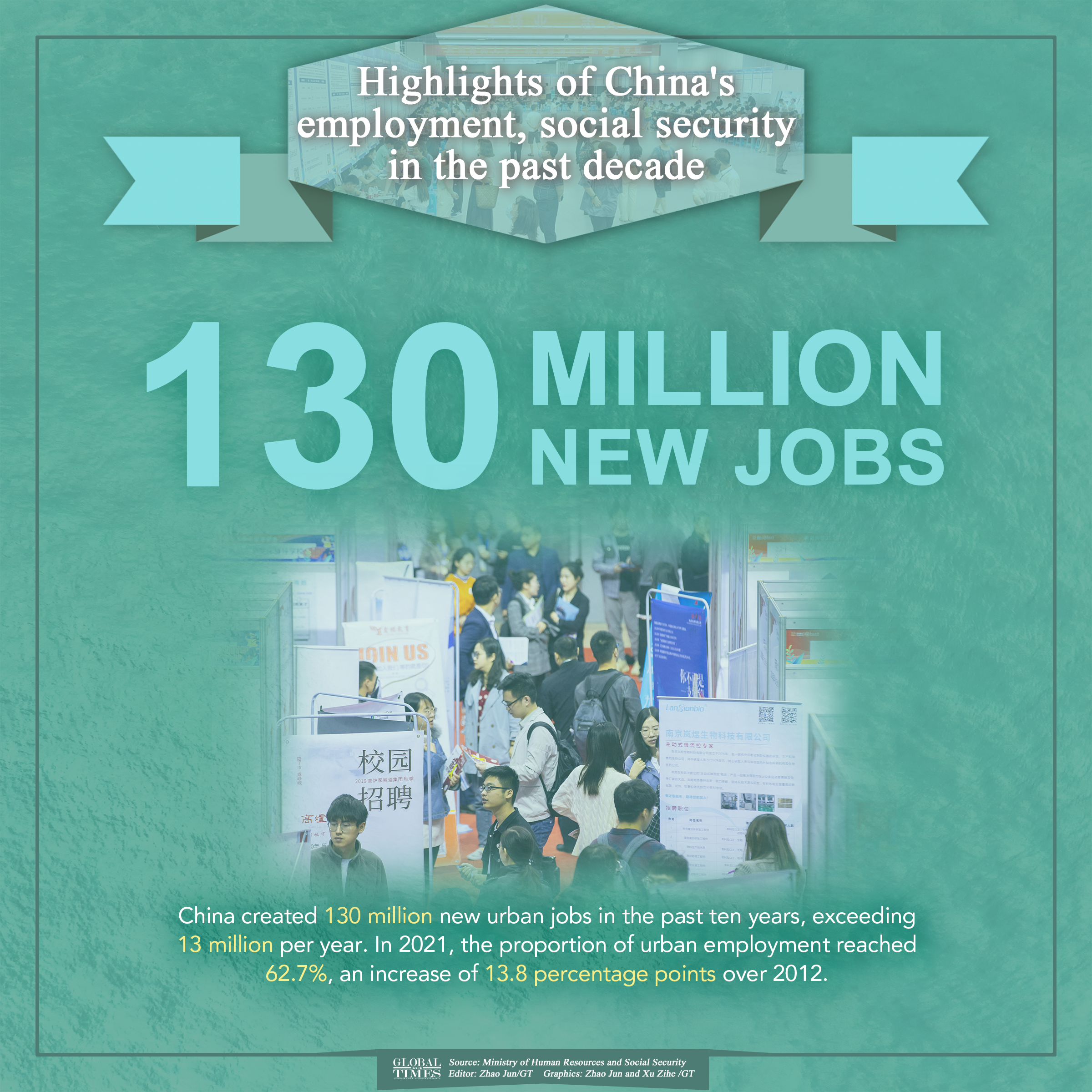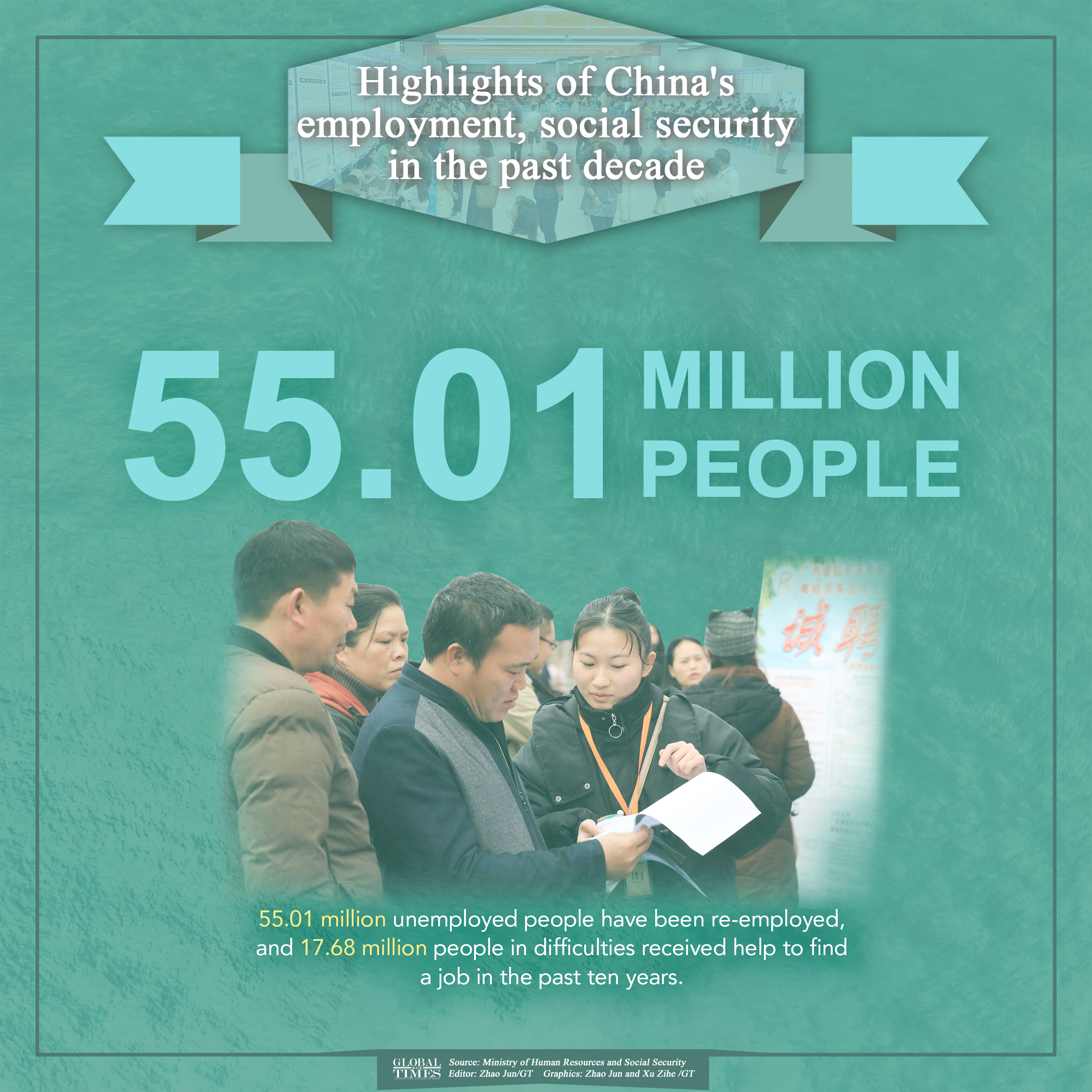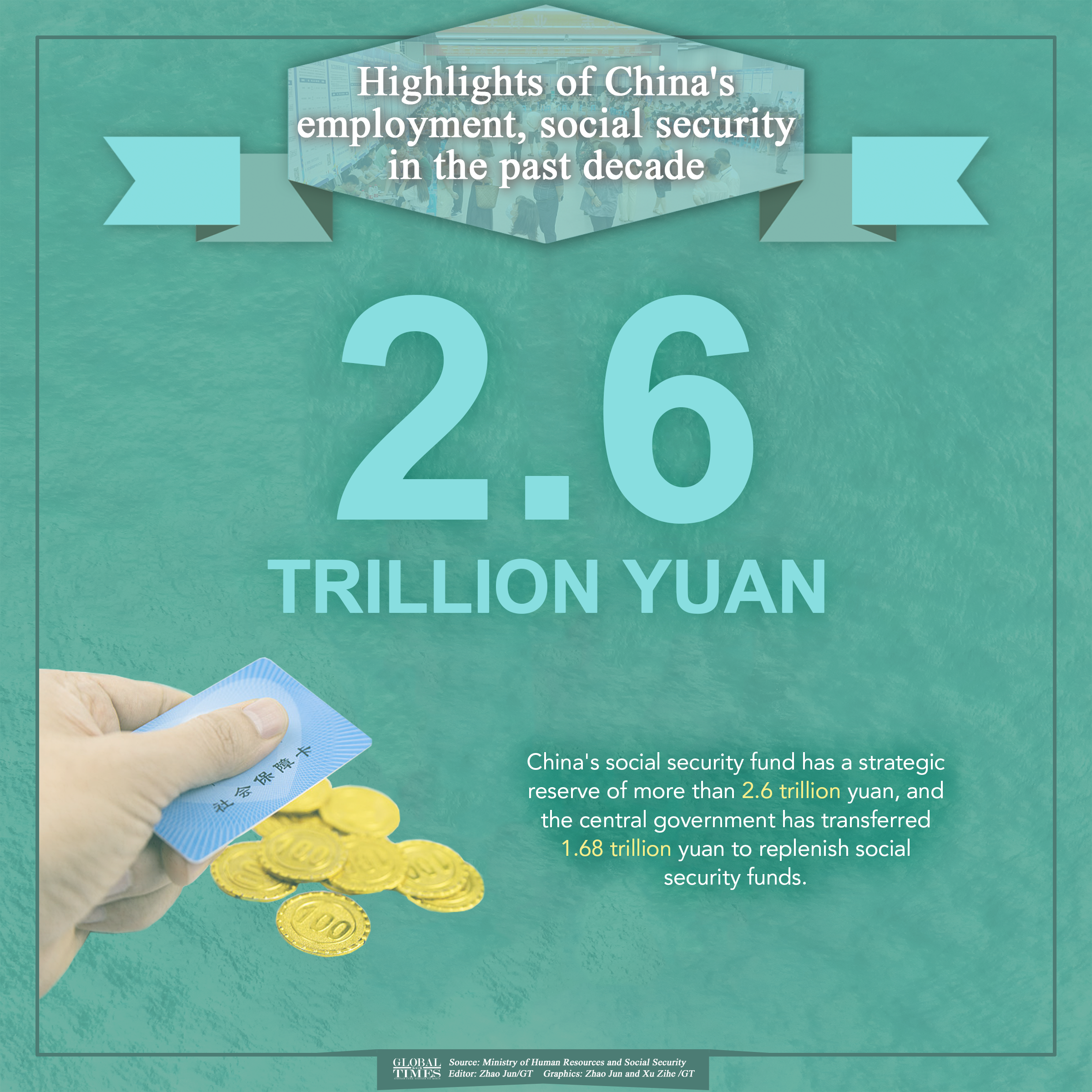
A job applicant exchanges information with a recruiter at a spring job fair held in Urumqi,Northwest China's Xinjiang Uygur Autonomous Region on Feburary 26, 2022. The fair hosted more than 200 enterprises with 2,000 positions available. Photo: cnsphoto
Fostering youth employment and helping college graduates land jobs stand on top of the to-do list for the Ministry of Human Resources and Social Security, with the implementation of multiple support policies viewed as critical to easing the youth unemployment situation, an official with the ministry said on Thursday.
Zhang Ying, a ministry official in charge of fostering employment, made the remark, during a press conference aimed at highlighting China's efforts and achievements in the human resources and social security work over the past decade.
Analysts said that more targeted support measures are expected to be launched to tackle youth unemployment, after it hit a record in July and pressure lingers as more college graduates enter the job market. More policies measures will also be taken to stabilize the overall employment situation, analysts noted.
China's youth jobless rate hit a record high of 19.9 percent in July, data from the National Bureau of Statistics (NBS) showed on August 15. Urban unemployment, meanwhile, stood at 5.4 percent in July. The figure was 6.1 percent in April, followed by 5.9 percent in May and 5.5 percent in June.
Youth employment tracks those aged between 16 and 24 years old. A record 10.76 million college graduates will hit the market in 2022, further weighing on employment. Epidemic flare-ups, decreased demand from employers and cancellation of certain job fairs have worsened the situation.
Zhang said that there will be special measures targeting youth employment, including encouragement and subsidies for companies to take on young people, tax and fee cuts, support for entrepreneurship and flexible employment, as well as guidance to help college graduates to find jobs and vocational training.
There are also special guidance programs that target young people who remain jobless for an extended period, and engagement with graduates from poverty-stricken families who are jobless on a one-on-one basis, providing them with job information and internship opportunities.
The announced measures come as the country is treating employment as a top priority. Wang Yang, chairman of the Chinese People's Political Consultative Conference National Committee, on Wednesday called for efforts to implement the country's employment-first policy, the Xinhua News Agency reported. Wang urged political advisors to pool their strength in stabilizing economic expectations and employment, as well as preventing large-scale unemployment.
Liao Qun, chief economist of the Chongyang Institute for Financial Studies at Renmin University of China, said that more support policies are expected to be rolled out to help the services industry in particular, a main employer for youth.
The private economy contributes more than 50 percent of the country's tax revenue, 60 percent of GDP, 70 percent of technological innovation, 80 percent of urban employment, and more than 90 percent of new jobs and new firms.
The services industry, especially small and medium-sized companies and the self-employed, has been particularly hit by the epidemic, Liao said, predicting more targeted fiscal and monetary policies in the second half of the year.
For instance, banks that excel in lending to smaller companies are more likely to get lower reserve requirement ratios, Liao said.
At the press conference on Thursday, the ministry said that China has kept unemployment low and maintained surveyed urban unemployment below a preset target over the past decade, since the 18th National Congress of the Communist Party of China.
On average, more than 13 million urban jobs were added each year from 2012 to 2021, data from the ministry showed on Thursday.
Faced with the impact of the COVID-19 epidemic and the disruption from China-US economic and trade friction, stabilizing employment has been the top item on the government's agenda, the ministry said, noting that as the world's largest developing country, long-term pressure and structural contradictions over employment issues still pose prominent challenges for the country.

Graphic: GT
China added 130 million people to its work force and built the world's largest functioning social security network over the past decade, according to the ministry. The number of skilled workers in China has surpassed 200 million.
Li Chang'an, a professor at the University of International Business and Economics' School of Public Administration, told the Global Times on Thursday that it is a miracle that China established the world's largest social security network, covering more than 1 billion people.
The quality of this network also improved over the period, as pension coverage continued to expand and central finances continued to shore up and subsidize company pension insurance funds, Li said.
Basic pension funds are guaranteed to be able to be disbursed on time and in full, another official with the ministry noted at the press conference, due to balanced revenue and expenditure, ample reserves and support from the central government.
The unemployment insurance rebate program paid 39.7 billion yuan ($5.79 billion) to 6.67 million companies during the first seven months of this year.

Graphic: GT

Graphic: GT

Graphic: GT








